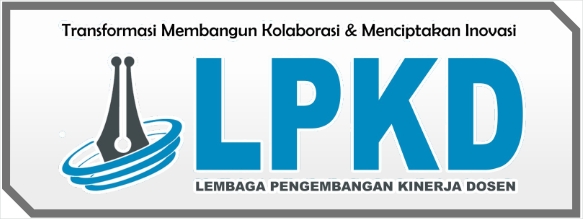Applying the Problem-Based Learning Model to Foster Higher-Order Thinking Skills in Primary Science Classrooms
DOI:
https://doi.org/10.62238/chatra.v3i2.269Keywords:
Problem-Based Learning, science learning outcomes, higher-order thinking skills, elementary schoolAbstract
The low level of scientific literacy among Indonesian elementary school students remains a major challenge in education, requiring innovative and contextual learning strategies. This study aims to analyze the effectiveness of the Problem-Based Learning (PBL) model in improving elementary students’ science learning outcomes while enhancing higher-order thinking skills. A quasi-experimental method was employed with a pretest-posttest control group design. The participants consisted of 20 fourth-grade students divided into experimental and control groups. The research instrument was a learning achievement test, and the data were analyzed using an independent t-test to examine differences between the two groups. The findings revealed a significant improvement in the experimental group compared to the control group, both in terms of mean scores and the range of learning outcomes. These results confirm that PBL not only enhances science learning achievement but also positively influences students’ motivation and engagement. This study contributes to the development of constructivist-based teaching practices that align with 21st-century educational demands. Future research is recommended to involve larger samples and longer study durations to explore the long-term impact of PBL on students’ scientific literacy.
References
Amarta, P., Sarwanto, S., & Rintayati, P. (2018). Review Literature of Science Process Skill in Curriculum 2013 at Elementary School. 371–374. https://doi.org/10.2991/ICTTE-18.2018.69
Azka, N. W., Putri, H. E., & Rahayu, P. (2023). Pengaruh Model Problem Based Learning terhadap Peningkatan Kemampuan Literasi Sains Siswa Sekolah Dasar. Fondatia. https://doi.org/10.36088/fondatia.v7i3.3799
Creswell, J. W. (2014). Research Design: Qualitative, Quantitative and Mixed Methods Approaches (4th ed.). SAGE Publications.
Desiyanti, V., & Nugroho, I. A. (2024). The Influence of the Problem Based Learning Model on the Scientific Attitudes and Science Learning Outcomes of Fifth Grade Elementary School Students. Jurnal Penelitian Pendidikan IPA (JPPIPA), 10(10), 8088–8097. https://doi.org/10.29303/jppipa.v10i10.8623
Dike, D. (2022). Studi Meta Analisis Pengaruh Model Pembelajaran Problem Based Learning pada Pembelajaran IPA di Sekolah Dasar. Terampil, 8(2), 137–142. https://doi.org/10.24042/terampil.v8i2.8398
Etikan, I. (2016). Comparison of Convenience Sampling and Purposive Sampling. American Journal of Theoretical and Applied Statistics, 5(1), 1. https://doi.org/10.11648/j.ajtas.20160501.11
Faisal, Faisal, & Martin, S. N. (2019). Science education in Indonesia: past, present, and future. Asia-Pacific Science Education, 5(1), 1–29. https://doi.org/10.1186/S41029-019-0032-0
Fraenkel, J. R., Wallen, N. E., & Hyun, H. (2011). How to Design and Evaluate Research in Education (8th ed.). McGraw-Hill Education.
Ghufron, S., & Rulyansah, A. (2023). A Bibliometric Review of Learning Approaches in Primary Education Level: Examining the Indonesian Contribution to the Field. Elementary: Islamic Teacher Journal. https://doi.org/10.21043/elementary.v11i1.19411
Ilma, M., & Wulandari, F. E. (2023). Problem Based Learning (PBL) Model on Students’ Environmental Literacy Ability in Elementary School Natural Science Lessons. Indonesian Journal of Education Methods Development, 22. https://doi.org/10.21070/ijemd.v22i.741
Naresti, D. A., & Suratmi. (n.d.). Developing Digital Storybooks to Enhance Primary School Students’ Scientific Literacy: A Needs Analysis. https://doi.org/10.32585/jurnalkomdik.v8i2.5081
Rahmani, R., & Mahyana, M. (2022). The Implementation of Problem Based Learning Model on Science Problem Solving Ability of Elementary School Students. Proceedings of International Conference on Multidiciplinary Research, 4(1), 20–27. https://doi.org/10.32672/pic-mr.v4i1.3734
Sugiyono. (2023). Metode Penelitian Pendidikan (Kuantitatif, Kualitatif , Kombinasi, R&D Dan Penelitian Pendidikan) (3rd ed.). Alfabeta.
Suharninuk, D. R., Fajrie, N., & Kurniati, D. (2023). Student Collaboration Skills Through Problem-Based Learning Models in Learning Science Electrical Circuit Material at Elementary School. Uniglobal Journal of Social Sciences and Humanities, 2, 46–53. https://doi.org/10.53797/ujssh.v2i2.8.2023
Sukaeni, E., Rosita, E., & Mulyani, L. (2022). Peningkatan kemampuan siswa dalam membedakan lingkungan sehat dan tidak sehat dengan menggunakan media gambar pada mata pelajaran ipa di kelas i sdn 1 ciwangi kecamatan limbangan. PrimEarly : Jurnal Kajian Pendidikan Dasar Dan Anak Usia Dini, 5(1), 62–71. https://doi.org/10.37567/prymerly.v5i1.1458
Suryanti, S., Prahani, B. K., Widodo, W., Mintohari, M., Istianah, F., Julianto, J., & Yermiandhoko, Y. (2021). Ethnoscience-based science learning in elementary schools. 1987(1), 012055. https://doi.org/10.1088/1742-6596/1987/1/012055
Wibawa, I. M. C., Susanta, I. W., Parmithi, N. N., & Mahendra, I. W. E. (2023). Improving the Scientific Attitude of Elementary School Students Through Problem-Based Learning. Mimbar PGSD Undiksha, 11(1), 18–23. https://doi.org/10.23887/jjpgsd.v11i1.61884
Yuliana, I., Jatmiko, B., Wıdodo, W., & Irwanto, I. (2025). Primary education students’ scientific literacy in terms of some variables. Edelweiss Applied Science and Technology, 9(1), 1277–1288. https://doi.org/10.55214/25768484.v9i1.4384
Downloads
Published
Issue
Section
License
Copyright (c) 2025 Muhammad Feri (Author)

This work is licensed under a Creative Commons Attribution-ShareAlike 4.0 International License.













